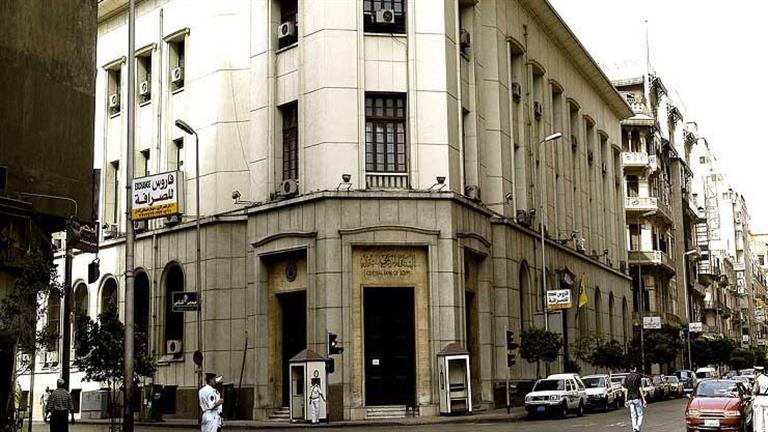21:14
Thursday 22nd September 2022
–
Books – Mustafa Eid:
The Central Bank of Egypt raised the mandatory cash reserve ratio of bank deposits to 18% instead of 14%, which accompanied its decision to set interest rates for the third consecutive time during the meeting of the Committee of monetary policy today, Thursday, at 11:25% per deposit and 12.25% per loan.
This required reserve increase is the first of its kind since October 10, 2017, when the Central Bank increased it from 10% to 14% as of October 10.
The Central Bank reduced the required reserve requirement by 4% in 2012, to allow banks to meet the increased demand for liquidity after the January 25 revolution.
In the following lines Masrawy tries to define the meaning of the reserve requirement and the impact of the decision on inflation rates and on the performance of banks, and is this decision positive or not?
What is the mandatory reserve on bank deposits?
Mandatory reserve is a percentage of total customer deposits with banks, both in local and foreign currency, that the Central Bank obliges banks to deposit without receiving a deposit refund.
What is the purpose of imposing a mandatory reserve on bank deposits?
Its purpose is to maintain it, in order to ensure that the bank depositing the reserve is not exposed to any risk in the event of a massive withdrawal of its deposits from customers.
The compulsory reserve is also used as one of the central bank’s monetary policy tools to intervene in the market by withdrawing or increasing liquidity, which contributes to influencing inflation rates, especially in terms of demand-related factors, as the greater the liquidity, the greater the demand for the purchase of goods, therefore the higher the inflation rates and vice versa.
– How does the Central Bank’s decision affect current inflation rates?
The Central Bank said today in its statement that increasing the required reserve ratio will help limit the monetary policy pursued by the Central Bank.
The increase in reserve requirements contributes to the central bank’s achievement of the goal of controlling the high inflation of recent months, as an alternative to a new interest rate hike, especially as the central bank sees the first hike in March and May with a total of 3% is still moving towards the markets, and therefore it is difficult to make a decision on a new hike.
Furthermore, the increase in the reserve prevents the central bank from resorting to raising interest and thereby supporting the economy, especially in light of the repercussions of global economic conditions on the private sector and economic activity, as well as saving the public treasury a additional cost of borrowing in order to close the funding gap and thus not expand the deficit.
Mona Badir, an economist, told Masrawy that today’s central bank decisions reflect that the management of the new bank is more conservative about relying on the traditional tool of monetary tightening, namely raising the interest rate, which has the faster effect in relation to inflation.
He added that the new central bank administration is keen to support the economy as much as possible with this decision, specifically that rising interest rates will throw a new burden on sectors of the real economy.
He stressed that this is happening at a time when these sectors are already suffering from the difficulty of their ability to achieve high prices of international raw materials, which affect the cost of production, in addition to the difficulty of their ability to guarantee these materials in the first place, especially in light of the dollar shortage crisis and the documentary credit crisis.
The annual general urban inflation rate rose to 14.6% in August 2022 from a rate of 13.6% in July, according to today’s Central Bank statement.
The annual rate of core inflation – which is calculated by excluding the group of fresh vegetables and fruit as well as goods and services whose prices are set by the administration – recorded 16.7% last August from 15.6% in July. .
The Central Bank had aimed to record the annual inflation rate of 7% during the fourth quarter of 2022, with a 2% increase or decrease from this rate.
However, he said in his statement today that inflation rates are projected, on a temporary basis, to rise above his target.
– What is the impact of the Central Bank’s decision to increase the required reserve on banks?
There are 4% of the deposits, after being used for the purchase of treasury bills and other credit instruments, they have been transferred to the Central Bank with no return, which will put pressure on the banks’ revenues, according to Radwa Al-Swaify, research chief at Al-Ahly Pharos company, told Masrawy.
Al-Suwaifi believes banks could demand a higher yield on government-offered treasury bills and in which banks invest in the short term to mitigate the impact of the decision until interest rates are reduced by the central bank.
Is the increase in the compulsory reserve necessarily linked to the control of inflation?
The increase in reserve requirements is not only related to inflation, but its main objective is that the banking sector is in good shape, which means that there is no excess liquidity that banks will pay to lend without good verification of the borrower and his ability to pay, Noman Khaled, an analyst at Arqaam Capital Investment Bank once told Masrawy.
Are there any other advantages to the decision?
The decision could increase the cost of treasury bills to the state in the next period as liquidity in banks declines, but at the same time it could lead to attracting some foreign investment in these instruments after they have fallen sharply in recent months due to le repercussions of world economic conditions with the outbreak of the war in Ukraine and the rise in US interest prices.
–


